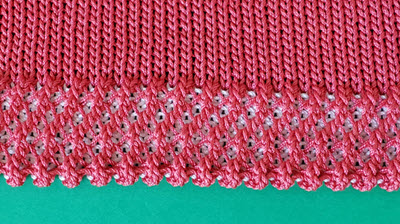
Challenge: Translate a Vintage Knitting Pattern
Take some mystery instructions, translate them for your machine and knit a gorgeous lace peek-a-boo hem.
patterns terminology vintage patterns

Take some mystery instructions, translate them for your machine and knit a gorgeous lace peek-a-boo hem.
